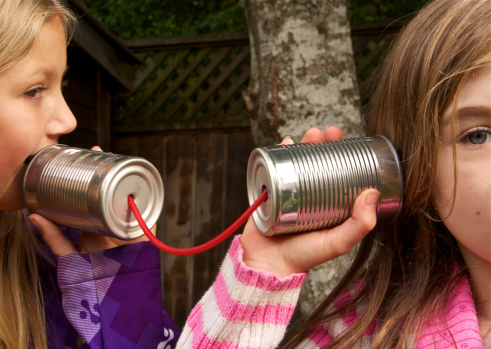
Here are five suggestions for how divorcing parents can provide support to their children in the new year:
1.
Keep expectations realistic. Children go through a grieving process just as their parents do when the marriage ends. Their energy and focus may be impacted, and this can affect their performance in school, sports or the arts. If this happens, be gentle with your child, who will be even more unhappy if s/he feels like a failure in a parent’s eyes.
2.
Remind your child regularly that s/he is cherished. Children do best when they experience unconditional love and support from parents. This includes being curious and interested in your child’s ideas, stories and day-to-day experiences.
3.
Find time to do something enjoyable with your child. If you are fortunate enough to have the time and energy to go on a date with your child to do something mutually enjoyable this can be a great bonding experience. However, kids my love the opportunity to play a board or video game with a parent, or make popcorn or brownies together before watching a movie at home.
4.
Maintain routines. Most children, just like most adults, depend on routines to keep a sense of stability in their lives. Keep routines for mealtimes, bedtimes, homework time, doing chores, etc. as predictable as possible.
5.
Be authentic. Children rely on parents to be trustworthy. There may be days when it is difficult to not be sad, or when patience is in short supply because of the stress of the divorce. It’s okay to be real with your children about your feelings as long as you keep them out of the middle of any conflict with your co-parent, and as long as you are very careful to not imply that a child is responsible for making a parent feel better. “I’m pretty sad today, so I don’t have a lot of energy. But I know feelings don’t last forever, and I’ll feel better soon.”
 publishing. Everyone apparently thinks they have tips and ideas to help others parent. As a collaborative divorce attorney, clients often seek guidance and support in co-parenting during and after the divorce. No book ever fits the bill. While traditional books may offer some guidance, co-parenting after divorce is a unique situation. Not only do children sometimes have challenges as the result of the divorce, parents too are transitioning into a new reality.
In collaborative divorce, we often work with a family specialist or child specialist to help families transition from one home, into two. This neutral party can assist in many aspects of parenting, including the following:
publishing. Everyone apparently thinks they have tips and ideas to help others parent. As a collaborative divorce attorney, clients often seek guidance and support in co-parenting during and after the divorce. No book ever fits the bill. While traditional books may offer some guidance, co-parenting after divorce is a unique situation. Not only do children sometimes have challenges as the result of the divorce, parents too are transitioning into a new reality.
In collaborative divorce, we often work with a family specialist or child specialist to help families transition from one home, into two. This neutral party can assist in many aspects of parenting, including the following:










 Having friends scattered throughout the country has shown me just how drastic divorce proceedings and turnarounds can be. My friend in Baltimore, Maryland, who was married for 5 years with no kids, had no battles over property division, and her divorce still took just over 2.5 years to complete, including a mandatory year of separation before filing (this law has since changed recently for those without children). A friend in Milwaukee, Wisconsin, her divorce with one child and a business involved, took just 6 months to the date. And my good friends (haha), Miranda Lambert and Blake Shelton’s Oklahoma divorce after four years of marriage complete with pre-nup and no kids, took just days from when they filed.
Here in Minnesota the length of time to complete a divorce depends upon several things, including custody, parenting time, child support, and division of debts and property. It can take anywhere from about 6 weeks to a year and a half or more, depending upon whether the parties are cooperating, and depending upon the issues involved. The length of a divorce also largely depends on how the case is resolved. For example, divorcing collaboratively, where both party’s attorneys agree to settle without going to trial and the underlying threat of litigation, can significantly reduce the time it take to complete the divorce for several reasons, the biggest factor being avoiding months awaiting a divorce trial.
Divorce is the time to practice patience, and to always prepare yourself for the divorce process to take longer than anticipated. Even in our instant gratification society where you can have Amazon deliver within the hour, your divorce could take months to years. No matter how long your divorce proceedings may take it is important to remember that divorce never really ends with a “victory” by either party. Both parties typically leave the marriage with substantially less material wealth than they started with prior to the divorce. Occasionally, you may hear about a spouse receiving a very large settlement or substantial alimony compensation. But more commonly, both spouses must compromise in order to reach an agreement. If there are any real “winners” in the process, it’s those who maintain positive relationships with an ex-spouse so that they are able to successfully co-parent their children.
Having friends scattered throughout the country has shown me just how drastic divorce proceedings and turnarounds can be. My friend in Baltimore, Maryland, who was married for 5 years with no kids, had no battles over property division, and her divorce still took just over 2.5 years to complete, including a mandatory year of separation before filing (this law has since changed recently for those without children). A friend in Milwaukee, Wisconsin, her divorce with one child and a business involved, took just 6 months to the date. And my good friends (haha), Miranda Lambert and Blake Shelton’s Oklahoma divorce after four years of marriage complete with pre-nup and no kids, took just days from when they filed.
Here in Minnesota the length of time to complete a divorce depends upon several things, including custody, parenting time, child support, and division of debts and property. It can take anywhere from about 6 weeks to a year and a half or more, depending upon whether the parties are cooperating, and depending upon the issues involved. The length of a divorce also largely depends on how the case is resolved. For example, divorcing collaboratively, where both party’s attorneys agree to settle without going to trial and the underlying threat of litigation, can significantly reduce the time it take to complete the divorce for several reasons, the biggest factor being avoiding months awaiting a divorce trial.
Divorce is the time to practice patience, and to always prepare yourself for the divorce process to take longer than anticipated. Even in our instant gratification society where you can have Amazon deliver within the hour, your divorce could take months to years. No matter how long your divorce proceedings may take it is important to remember that divorce never really ends with a “victory” by either party. Both parties typically leave the marriage with substantially less material wealth than they started with prior to the divorce. Occasionally, you may hear about a spouse receiving a very large settlement or substantial alimony compensation. But more commonly, both spouses must compromise in order to reach an agreement. If there are any real “winners” in the process, it’s those who maintain positive relationships with an ex-spouse so that they are able to successfully co-parent their children.